Several protests on Dartmouth College’s campus have sparked, with a more recent one leading to 90 arrests, including students, faculty and community members. The university, located in Hanover, New Hampshire, has seen student protesters’ presence grow on campus to voice their support for the Palestinians and call for divestment.
Student protesters held an encampment on the green on campus on May 1 that resulted in the arrests of 90 individuals. The Arab American News spoke with several Dartmouth students, some of whom wished to remain anonymous, to discuss the scenes of the protest and their reason to participate.
Calvin George, a senior at Dartmouth studying mathematics and Asian societies, cultures and languages said several organizations on campus have organized protests, rallies and various other pro-Palestinian events. Two include the Palestine Solidarity Coalition (PSC) and the Dartmouth New Deal Coalition.
Earlier this year, students, including George, participated in a hunger strike organized by the Dartmouth New Deal Coalition. He said he and about seven other students were involved and some lasted up to 12 days.
He also said the hunger strike resulted in some negotiations with the college and a statement released by Dean Scott Brown.
“Dean Scott Brown sent a letter to all students when the hunger strike ended, and the three things that they said, they acknowledged Palestinian students exist and are respected… They committed to meeting with leaders from the Dartmouth New Deal Coalition to clarify the process of divestment. It’s very clear that’s not beginning divestment; that’s clarifying the process of divestment, and that’s a very important difference.”
With the size of each protest varying, George said that roughly half the student body was in attendance at one point, on the day of the encampment.
“Obviously not everybody there was supportive and sharing with us, but I would say the vast majority were,” he said. “So I mean I think probably over 1,000 people came out that day to stand in solidarity with us.”
Riot police were brought in for the encampment. George said that while he was not actively engaging in the encampment and just observing, he still felt that safety could be threatened due to the riot police’s presence.
“I mean they brought in police before and that definitely made us feel unsafe, but riot police is absurd,” he said. “It was an insane escalation for what was explicitly from the beginning a peaceful protest.”
Photos of the encampment at Dartmouth College. Photos: Amen Salha
George also shared his own connection and inspiration to engage in peaceful protest. His grandfather, a pastor with the United Methodist Church, studied religion in Jerusalem. There, he met Palestinians for the first time and experienced their “incredible hospitality.”
“He has a story where he runs out of camera film, so he asked these two small Palestinian boys, like ‘hey, do you know where I can get some camera film?’ and then [they] proceed to take him to each house on their street one by one. And he spends no less than 30 minutes at each house because they all invite him in and he has a bite to eat and he said it’s the most food he’s ever eaten in his life. And he eventually gets the camera film.
“So that’s when my grandfather first got involved,” he added. “And he’s been leading work volunteer trips to the West Bank and Gaza. I think he’s been 18 to 20 times now.”
He said his grandfather is his inspiration.
“He’s been doing this for decades now, but he gives me hope because you know when he was advocating for Palestinian freedom there were far less people then than there are now. It’s easy to find people that are willing to stand with you now.”
Another Dartmouth student who is a part of the Palestine Solidarity Coalition and wants to remain anonymous, told The Arab American News the steps they’ve taken to hold protests and create spaces for peaceful protest and discussion.
Previous protests, including the encampment, have been on the green, but protests after the arrested of May 1 left many legally unable to be on the green. So subsequent protests have been moved to Baker Lawn, which stands as a ‘brave’ space.
When the October 7 Hamas attack on Israel occurred, this student was completing an internship in Kuwait. Being in the Middle East throughout that time and watching the subsequent aftermath, he said that while he was always “against occupation and apartheid,” he had never been involved, but then he said he met and connected with so many Palestinians and felt compelled to.
“I met so many Palestinians, and just hearing their stories kind of gave it this very personal sort of human element to me… I felt like I had to get involved because these people, it’s a lot different when they’re your friends,” he said.
With the creation of their own ‘brave’ space on Baker Lawn, the student said the space is used to hold events with faculty, students and community members and stands as place for education and discussion.
Jessi Yu, a junior at Dartmouth studying sociology and government, is also a member of both the Dartmouth New Deal Coalition and the Palestine Solidarity Coalition and has participated in the protests on campus.
“I’m also a part of the Asian American Studies, which has also been very very involved in helping with some of the organizing for the PSC and for the new deal,” she said, referring to what has lead her to participate in the protests.
“I think in the fall when everything was happening and I looked around at my friends, I looked around at my professors, at administration, at faculty,” she said. “I looked around online and it was just really heartbreaking for me to see that it felt as if nobody cared, nobody cared about this issue that was hurting and killing so many people.”
The day of the encampment on May 1, Yu said the green of the campus became filled with students and it was “very heartwarming to see that so many people came. So many people here to share regardless of what they believed in, they were here to witness what was happening.”
Yu was one of the 90 people arrested. She said prior the police being called, they had a band playing on the lawn, a library set up and students mingling with one another.
“Before the police showed up, it felt like a really safe and good community to be in,” she said. “At no point did I feel unsafe, at no point was anything thrown; at no point was it violent until the police kind of showed up and that’s when I think for me, personally, things kind of get a little blurry. Everything’s happening at once and then before I know it, I’m being arrested.”
She said police zipped tied her wrists, along with the others who were arrested. She said she was also placed in a van before being being taken to the police station.
While at the station, she said she and the other students were informed of where they were no longer permitted. Those spots included the president’s house, Parkhurst Hall and the green.
The student government, Yu said, put out a referendum of no confidence about President Beilock.
“A bunch of us went to the student government meeting… and we kind of said ‘hey, you’re supposed to represent the students and you have not done that. We don’t feel represented by you. We don’t feel like you’re advocating for us. What are you going to do?’ And so they held a vote of no confidence. They put out a referendum.”
In efforts to continue to foster an open and communal space, Yu said they maintain a daily presence on Baker Lawn, also known as the ‘brave’ space, Monday through Friday, 9 a.m. to 9 p.m.
“We have a student and a community member that comes to do henna, we have music events and it’s kind of also just a really cool and radical space for students to hang out, to eat lunch, to do their work,” she said. “We have our little libraries set up, we have food and snacks, faculty have brought in food and snacks. We have self care, so people come and paint their nails and do self care activities and just chit chat.”
Ceasefire Resolution In Hanover Passed
Hanover, the city where Dartmouth is located, held a town meeting where they approved a ceasefire resolution.
Amen Salha, Dearborn native and student at Dartmouth, explained that the ceasefire resolution meeting was solely voted on by residents.
“We ended up voting on it and it was a small margin,” he said. “But they ended up passing a ceasefire resolution.”
A Hanover resident, Sharon Racusin, said in a Valley News report, “this resolution is part of a movement of towns and cities across the county to condemn the U.S. (government’s) complicity in Israel’s apartheid and system of oppression.”
Dartmouth students accounted for some of the voters as they attended the meeting and contributed to discussion, according to reports.
“Many Dartmouth students, faculty and staff find this resolution’s text overly exclusive, ill-nuanced for this conflict… and only liable to hurt of offend a large portion of this town’s residents who may feel unsafe, unwelcome or unheard in their own town or their campus,” said Dartmouth freshman Jackson Weinstein in a Valley News report.
Weinstein’s version of the resolution emphasized “a permanent and lasting peace in the Middle East” and for all peoples’ rights and well-being to be protected, and removed any mention of either Israel or Palestine. This amendment was rejected by voters by secret ballot, 132-74, according to the Valley News.
The original draft included stopping military aid to Israel, which was omitted from Weinstein’s amendment.


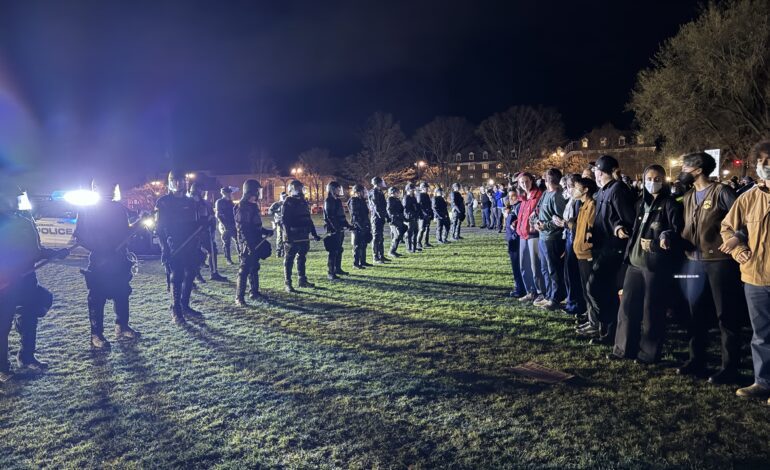
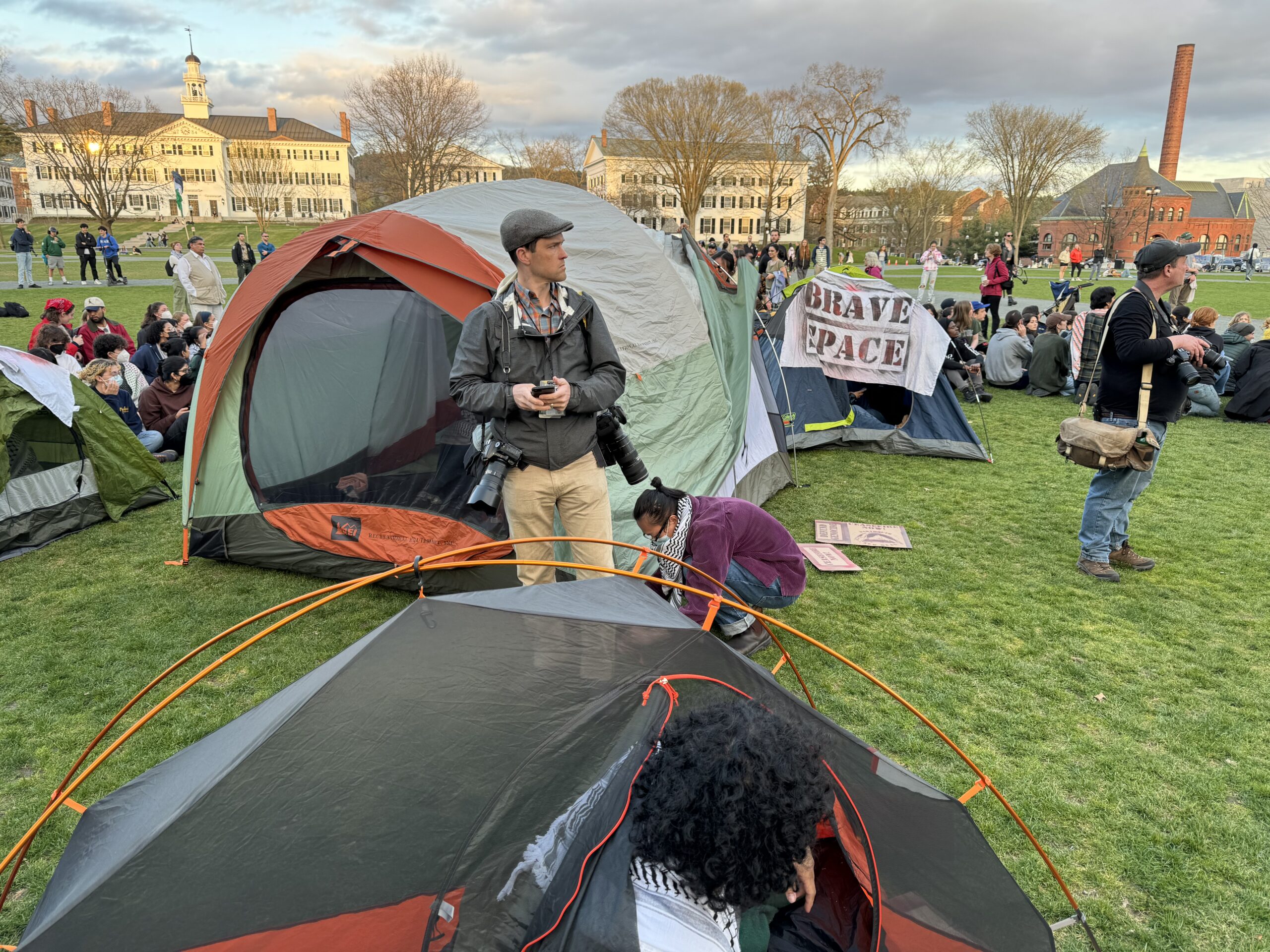
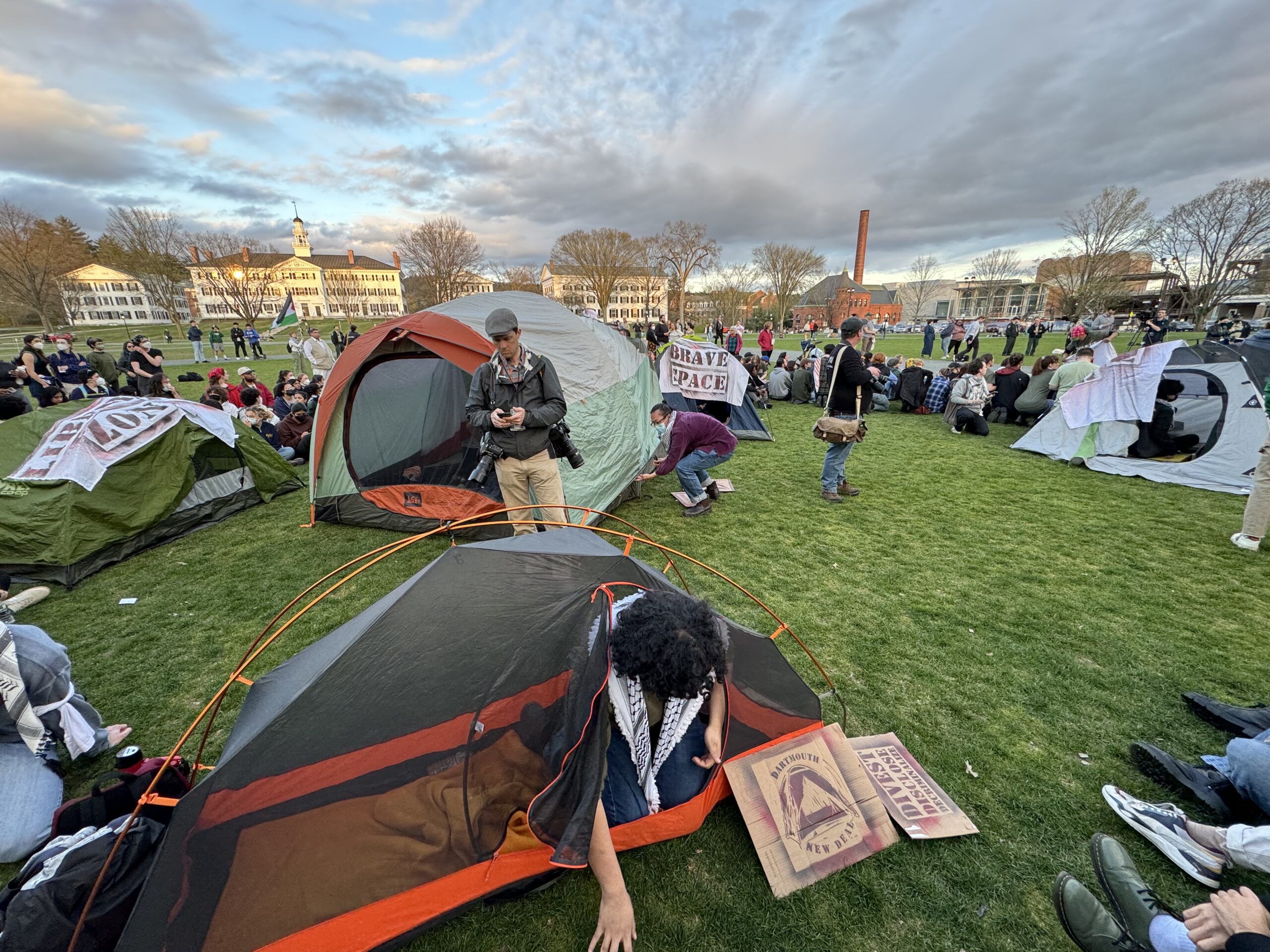
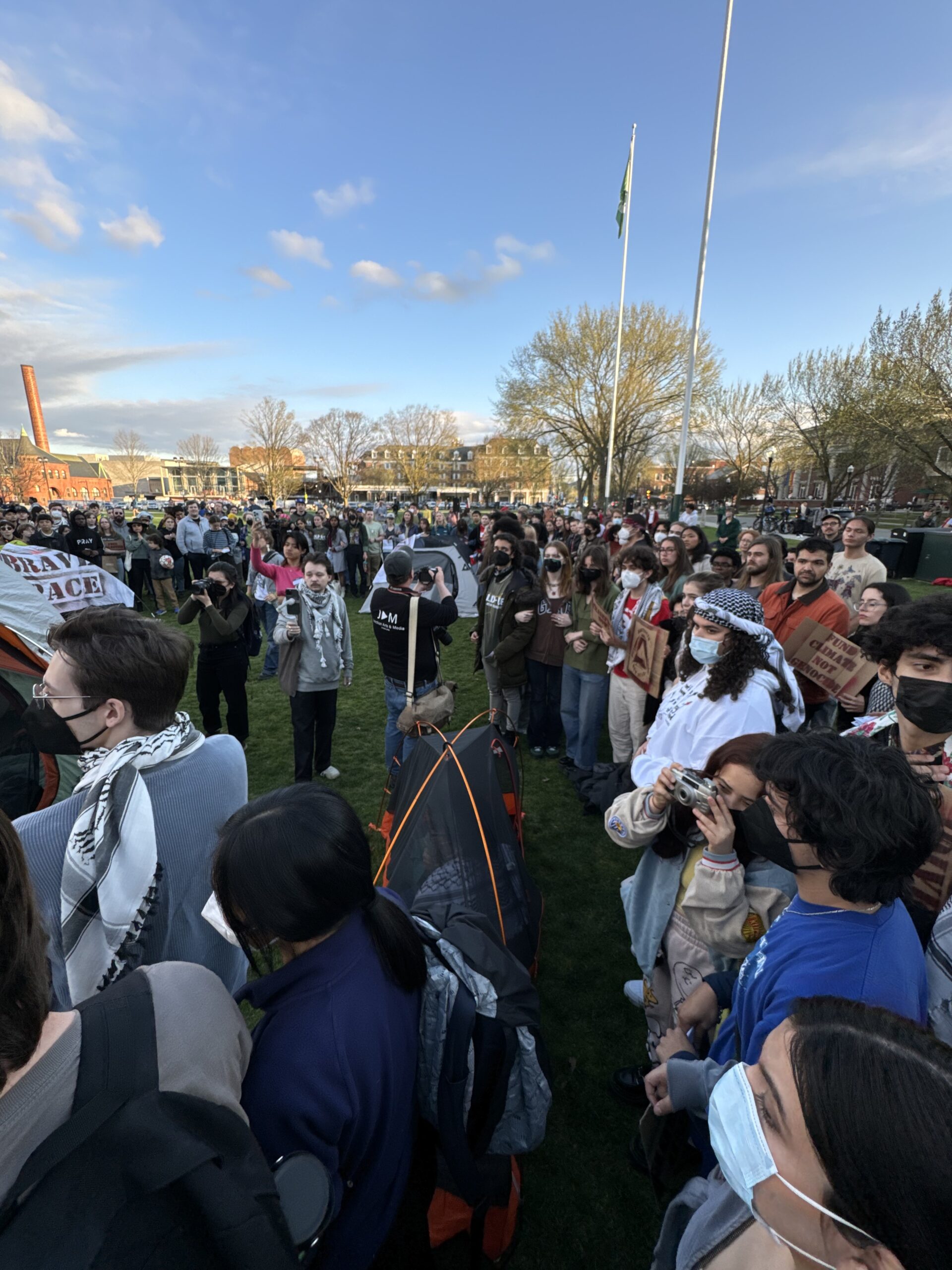
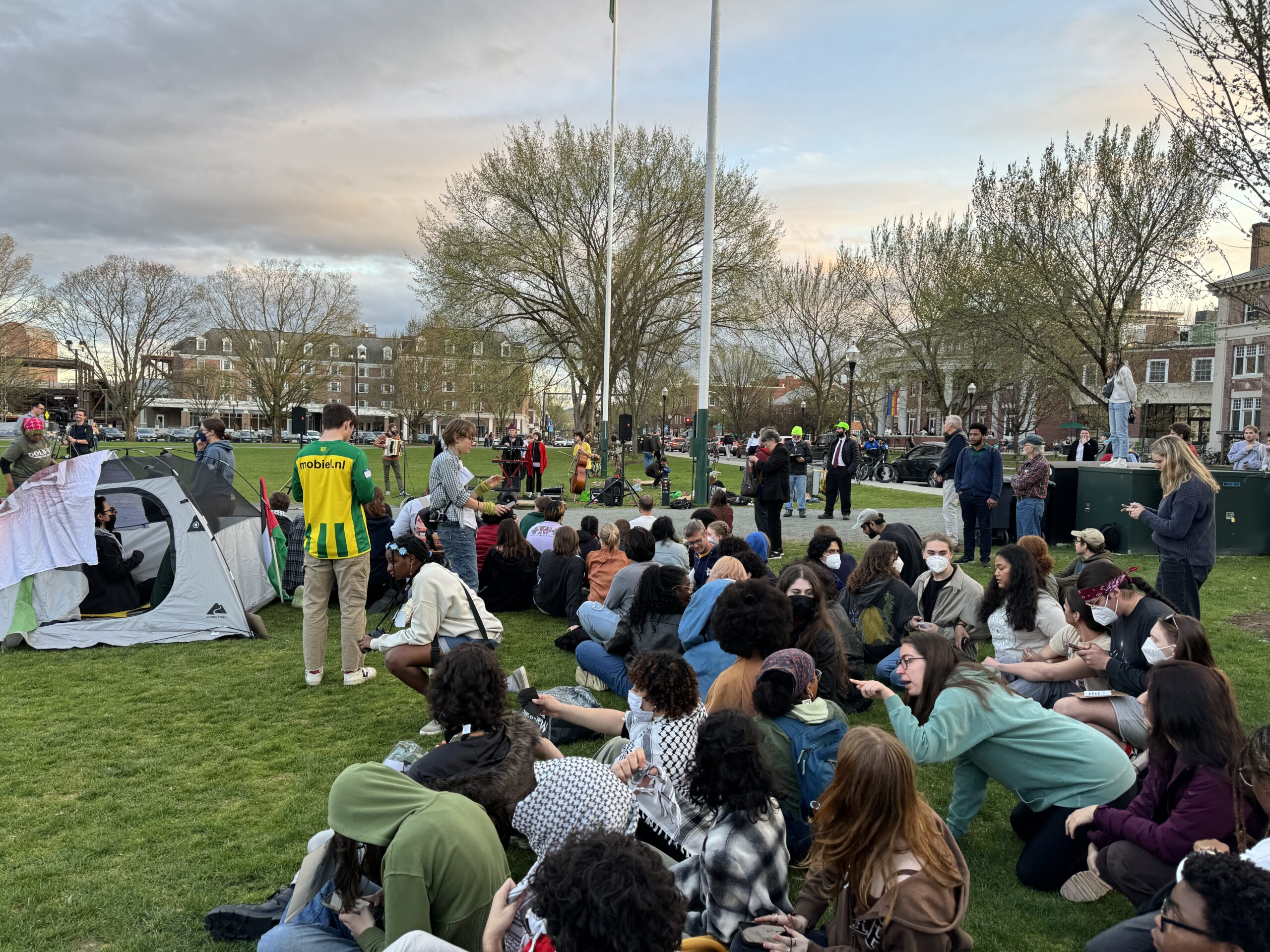
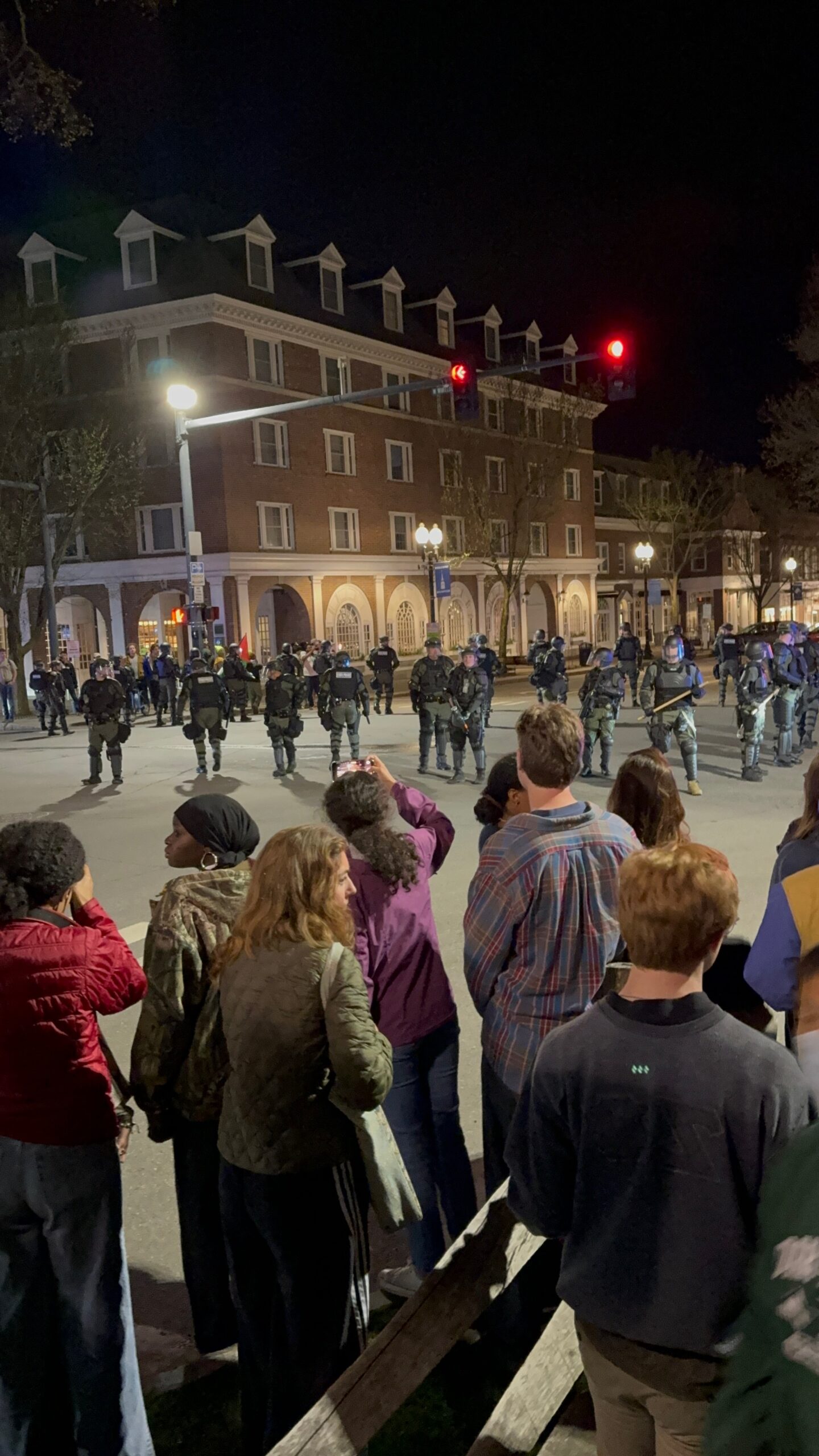
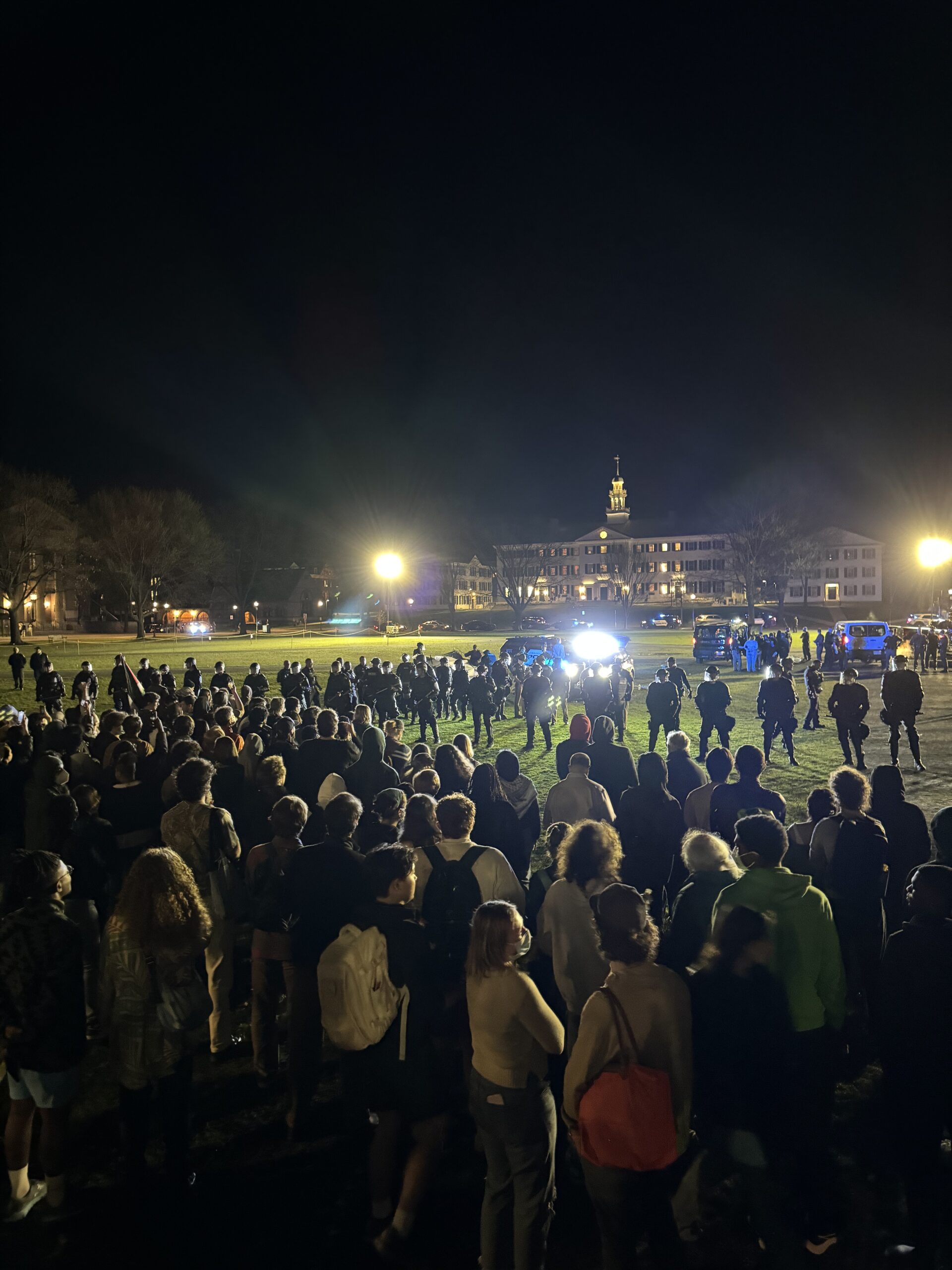
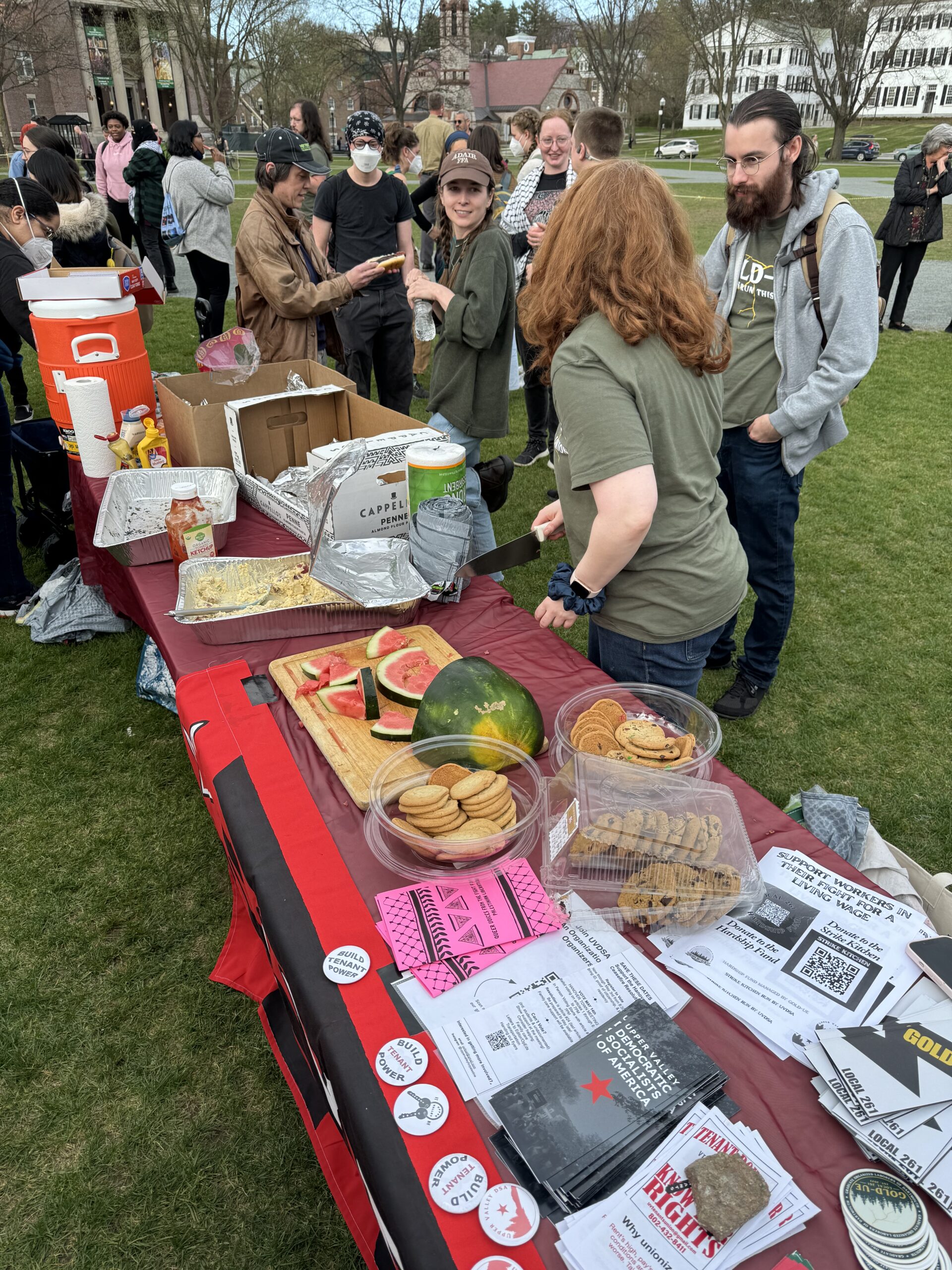
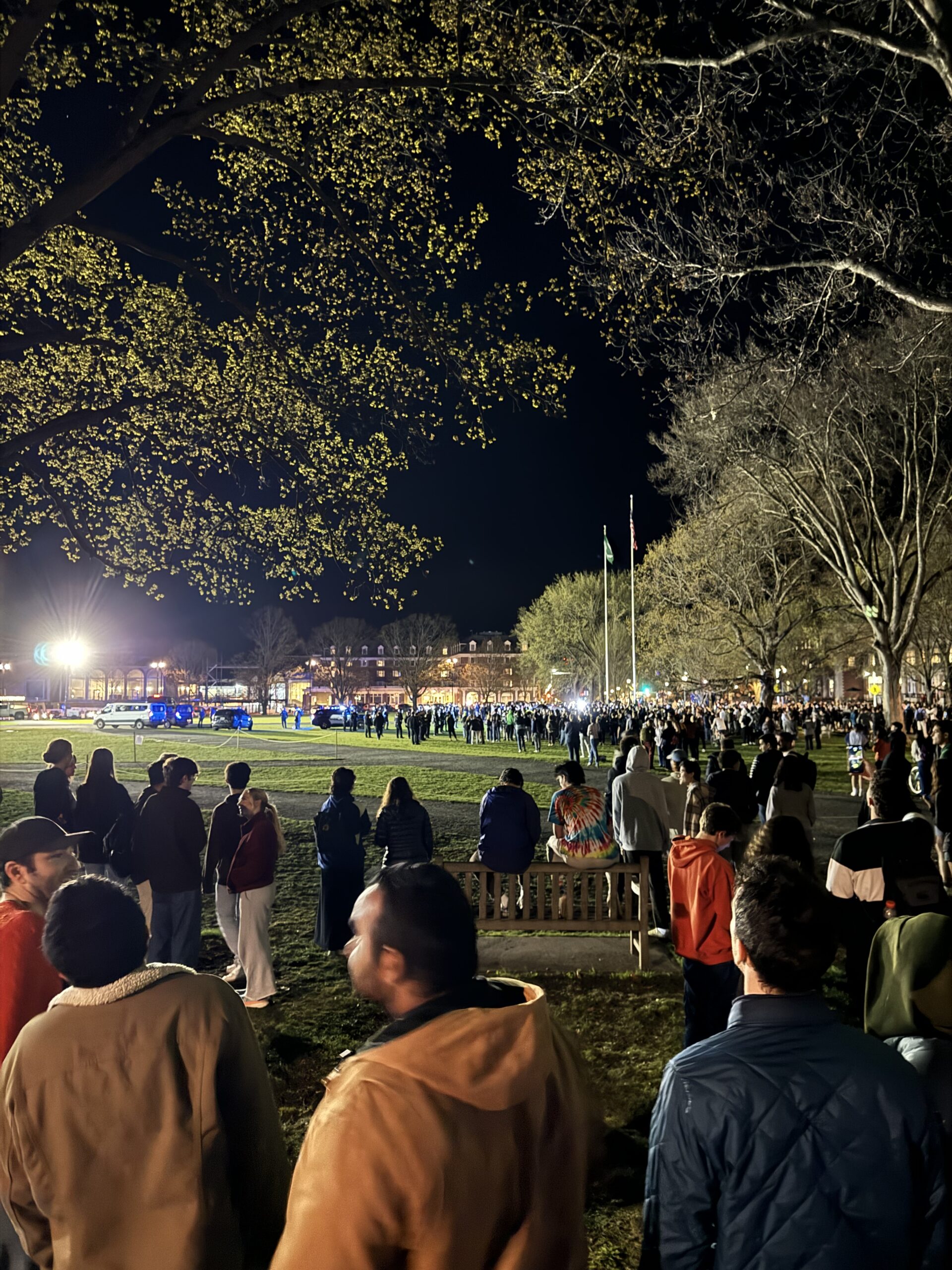
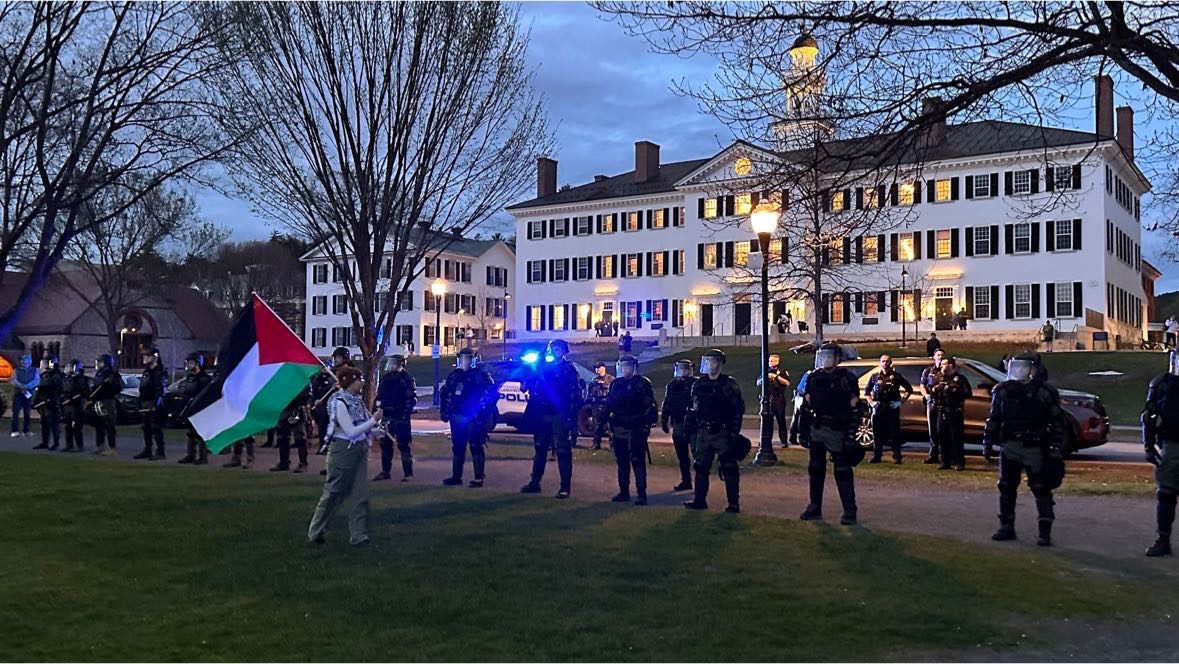



Leave a Reply